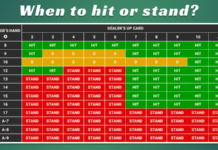Vitamin B12 is the usual name for a nutrient that is called Methylcobalamin. Vitamin B12 Methylcobalamin is being used as a dietary supplement and also to cure specific kinds of anemias. Vitamin B12 supplements are vital for the body to let it build up enough red blood cells. The Vitamin B12 benefits are many; you need to know in-depth regarding the facts related to Vitamin B12 deficiency, uses, and side-effects.
Vitamin B12 Deficiency
If you are having decreased levels of Vitamin B12 Methylcobalamin, you may feel weak, suffer from slow thought processing, and a condition, i.e., known as pernicious anemia (common symptom is numbness in fingers and toes). Your doctor will be suggesting you to perform some blood tests to see if you have low levels of Vitamin B12 Methylcobalamin.
People who mostly eat plant-based products or are vegetarian, usually have a risk of lower B12 levels than that of the ones who eat animal products as they naturally contain B12. Aged people are having more risk of suffering from Vitamin B12 Methylcobalamin lack. Reduced levels of folic acid may also cause a decrease in the levels of Vitamin B12.
Vitamin B12 Supplements & Foods
Vitamin B12 can be taken naturally from foods like liver, mollusks, and clams. Fish like tuna, wild, cooked trout, haddock, and sockeye salmon, are also efficient Vitamin B12 supplements. Meats like veal, beef, and lamb, as well as dairy products, including milk, cheese, and, have high levels of B12.
Vitamin B12 Benefits
- Vitamin B12 is considered as a nutrient that actually assists in keeping our brain function properly.
- It takes care of the functioning of our nervous system, as well as red blood cells.
- It even assists in making DNA, so that genetic material keeps intact within the cells.
- Also, Vitamin B12 helps in preventing a particular type of anemia, known as ‘Megaloblastic Anemia,’ which makes people feel weak & tired all the time.
- Sufficiency of Vitamin B12 during pregnancy prevents your child from suffering from some significant congenital disabilities.
- Vitamin B12 also takes care of your bone health and keeps your bones healthy and active.
- It also helps in preventing Osteoporosis.
- Vitamin B12 even diminishes the risk of any sort of ‘Macular Degeneration’.
- It assists in enhancing your mood and helps you fight depression and anxiety.
- It helps your brain to sustain the needed Neurons.
- It assists you in keeping energetic all the time.
- It decreases Homocysteine, and in turn, supports heart-health.
- It keeps your skin, nails, as well as hair healthy.
Warnings before using Vitamin B12 Supplements
Consult your doctor before intaking vitamin A if you suffer from:
- Allergy towards vitamin B12 or any other available ingredient
- a genetic condition is known as optic atrophy in which the nerve connecting the eye to the brain damages
- having blood in the urine
- an existing infection
- low levels of iron or folate
- a bone disease named polycythemia
Dosage of Vitamin B12: When to Take
Vitamin B12 intake changes as per gender, health conditions, as well as, age. For the deficiency of vitamin B12, your doctor may suggest a cyanocobalamin injection of 1000 micrograms per day to be taken for one week, and then once in a week, then once a month.
Overdose of Vitamin B12
If you find out that you have taken an overdose of vitamin B12, contact any nearest hospital or doctor as it may turn into an emergency.
Skipped Dose of Vitamin B12
If you skipped any dosage of Vitamin B12, take it when you can, that too as soon as possible.
But, if it’s been late, then let the missed dose be missed, and continue further routine treatment.
It is suggested not to double your dosage.
Side Effects of Vitamin B12
Some common side effects of vitamin B12 are:
- Swelling
- Anxiousness
- Headache
- Nervousness
- Itching
- Unmanageable movements
Severe side effects are:
- Reduced levels of potassium in the blood
- Sudden heart failure
- Visible clots in the legs and arms
- Introduction of a severe allergic reaction known as anaphylaxis, in which one faces trouble in breathing, tongue swells up, throat gets closed, and skin is being divided into hives
- Fluid starts filling up in the lungs

















